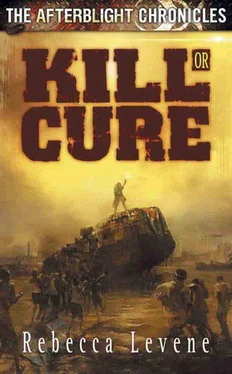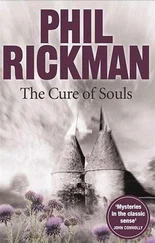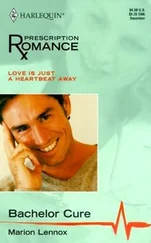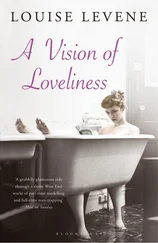Rebecca Levene - Kill or Cure
Здесь есть возможность читать онлайн «Rebecca Levene - Kill or Cure» весь текст электронной книги совершенно бесплатно (целиком полную версию без сокращений). В некоторых случаях можно слушать аудио, скачать через торрент в формате fb2 и присутствует краткое содержание. Жанр: Фантастика и фэнтези, на английском языке. Описание произведения, (предисловие) а так же отзывы посетителей доступны на портале библиотеки ЛибКат.
- Название:Kill or Cure
- Автор:
- Жанр:
- Год:неизвестен
- ISBN:нет данных
- Рейтинг книги:4 / 5. Голосов: 1
-
Избранное:Добавить в избранное
- Отзывы:
-
Ваша оценка:
- 80
- 1
- 2
- 3
- 4
- 5
Kill or Cure: краткое содержание, описание и аннотация
Предлагаем к чтению аннотацию, описание, краткое содержание или предисловие (зависит от того, что написал сам автор книги «Kill or Cure»). Если вы не нашли необходимую информацию о книге — напишите в комментариях, мы постараемся отыскать её.
Kill or Cure — читать онлайн бесплатно полную книгу (весь текст) целиком
Ниже представлен текст книги, разбитый по страницам. Система сохранения места последней прочитанной страницы, позволяет с удобством читать онлайн бесплатно книгу «Kill or Cure», без необходимости каждый раз заново искать на чём Вы остановились. Поставьте закладку, и сможете в любой момент перейти на страницу, на которой закончили чтение.
Интервал:
Закладка:
"Stupid fuckers," he said. "Try to get us every fucking time. Never fucking learn."
We walked off east, one man light and even more cautious. But I guess news of the fight travelled because no one else challenged us and the pressure of unseen eyes against my back eased.
The streets soon broadened again, into the grand, tree-lined boulevards of central Paris. I started to recognise the buildings we were passing from a romantic holiday he had taken me on. Palais de l'Elysee. La Madeleine. Our route led straight through La Place de la Concorde and I wondered again just where we were going. Who we were looking for.
No one had taken the gun from me after the fight, and it hung limp and useless from my hand as we walked. I guessed it was a sign of trust, but I didn't feel particularly flattered.
Kelis saw me looking down at it and gently pried it from my fingers. "Might want to reload that," she said, doing it for me. When she handed it back I tried to hold it in a firmer grip but it still felt alien in my hand.
He'd taught me to shoot, back when we first met, said it was something everyone should know how to do – almost as if he'd seen all this coming. But I'd never learned to love guns the way he did. I didn't like the potential for death I could always feel curled up in their barrels.
When we stopped at the huge glass pyramid, I thought for an insane moment that we'd come sightseeing, that this was what it had all been about. But the tense set of Kelis' shoulders and the sudden tight wariness around Soren's eyes, told me different. This, for whatever reason, was our target.
"So we're what?" I said to Kelis. "Stealing artwork? Desperate to get our hands on the Mona Lisa? Unable to go another minute without looking at the Venus de Milo?"
She flicked a quick, hard smile at me. "Long gone. We're here for something much more valuable."
"Is it going to require the use of my gun?"
"That's not the plan, but…" Kelis shrugged.
Right, because when did anything ever go according to plan? My hand tightened on the trigger, so hard that I almost let loose a volley when the lone figure emerged from the glass pyramid. But he was unarmed. Hands held high.
Curtis wasn't taking any chances. He waited until the figure walked right up to him and then grabbed him round the neck, pulling him into the shelter of an old magazine stand.
The man didn't resist when Curtis frisked him, and he proved not to be armed. He was thin-faced, deep smile lines etched at the sides of a wide mouth, hair so brown it was almost black. When Curtis finally released him, the smile lines deepened as he grinned at us, as if he wasn't staring down the barrels of enough heavy ordinance to take on a small army.
"My name is Jules," the man said, his French accent only faint. "Welcome to Paris."
"Yeah, it's been real welcoming so far," Curtis said. "I'll be giving it a five star write-up in my travel guide."
The man frowned. "Ah. I think perhaps you have met with the Revolutionary Guard. They see it as their duty to protect this great city against incursions from elsewhere."
"No kidding," Kelis said. "And what about you? You planning to live up to the Parisian reputation for warm hospitality?"
He turned to face her, hands lifted in a conciliatory gesture. "We are always keen to welcome newcomers." And then, for just a moment, the smile slipped from his face. "We also have twice as many armed men as your numbers, and not all of them are inside the pyramid. But this does not matter, I think, because you are not here to make war."
Curtis' mouth pulled into a thin line. "No. That's not what we're here for at all."
It surprised me how readily Curtis allowed his men to surrender their weapons, leaving half his force behind to guard them while the disarmed contingent – myself included – was led into the pyramid by Jules.
Kelis hadn't been kidding. Everything of value was long gone, horded by some unknown collector for some unknown purpose. The bare walls of the gallery looked like an accusation, or a metaphor. The stripping away from this new life of everything that wasn't purely functional.
Still, there was no denying it made a great base. There were fifty-six of them here, camped out in the shell of the museum, sitting on a stockpile of weapons and ammo they'd scavenged from who knew where. They weren't soldiers – there were families, children as young as two and a silver-haired old woman well past eighty – but they knew how to fight. Or they'd learnt, in those last five brutal years.
They had food too, fresh food. After we'd toured the empty, dismal galleries of the museum and seen the homes they'd carved out for themselves in the shell, they took us to their farm. I smiled when I saw it. The Twilleries, the formal gardens long dug up, rows of lettuce, beets, potatoes, planted in place of the roses and neatly mowed lawns.
"How can you defend all this?" Kelis asked.
Jules shrugged. "We have guards."
But she shook her head. "Not enough. Not for this."
He looked at her narrowly, assessing. Then he nodded. "No, not for this. But without us it would not grow so well, nor the hydroponics underground. We have scientists among our number, agronomists, and biochemists. We make medicines too. They, the Revolutionary Guard, and others like them, let us make the things they need. They take what we give and we make sure that the price for taking it all would be too high."
Curtis looked impressed. Or maybe he was just pissed off – he had the kind of face which made it hard to tell. "We want to trade," he told Jules. "Groups like yours and ours need to connect, share technology. Rebuild society from the bottom up."
Jules nodded, a reflex gesture rather than an indication of agreement. "Trade requires the possession of something that another desires. And we have everything we need."
"When was the last time you ate a pineapple?" Curtis asked.
Jules smiled. "That wasn't tinned?"
"Coconut, too. Peaches, lemons, oranges. Fresh fish, fresh meat. And that's just the basics." It was the most animated I'd seen Curtis. His face was filled with an almost evangelical fervour and for the first time I considered that Queen M's kingdom might be something her people believed in. "We have higher technologies too. Some manufacturing. We have access to oil fields."
Jules looked suddenly wary. "You have all this, and yet you would cross an ocean to trade with us. What is it we have that you want?"
Curtis's expression shifted, just a little, and I knew that whatever answer he was about to give, it wouldn't be the truth. But for the moment the conversation moved on, and soon they were bartering, figuring out exchange rates in a world without currency. They talked about technologies, the possibility of getting generators running again without enough people to staff them. There was drinking and eating too and after a while some chatting and bonding. It felt strangely ordinary. Just one group of people visiting another and chewing the fat. A little boy came to sit in my lap, his curly brown hair brushing against my chest as his head turned backwards and forwards, following a conversation he couldn't understand.
Some time after midnight, it all began to wind down. Jules hesitated, then told us that we could sleep in the safety of the Louvre with them. I was the only one watching Curtis' face as he said it, and I knew instantly that he'd made a terrible mistake in his invitation.
The attack came at precisely four in the morning. At the first sound my eyes snapped open, then snapped to the clock on the far wall – an instinct I'd picked up years ago when he and I had been living together, and there was no telling when he might get called away or where to. Four o'clock is the deepest part of the night – the time when most people who die in their sleep pass away.
Читать дальшеИнтервал:
Закладка:
Похожие книги на «Kill or Cure»
Представляем Вашему вниманию похожие книги на «Kill or Cure» списком для выбора. Мы отобрали схожую по названию и смыслу литературу в надежде предоставить читателям больше вариантов отыскать новые, интересные, ещё непрочитанные произведения.
Обсуждение, отзывы о книге «Kill or Cure» и просто собственные мнения читателей. Оставьте ваши комментарии, напишите, что Вы думаете о произведении, его смысле или главных героях. Укажите что конкретно понравилось, а что нет, и почему Вы так считаете.












